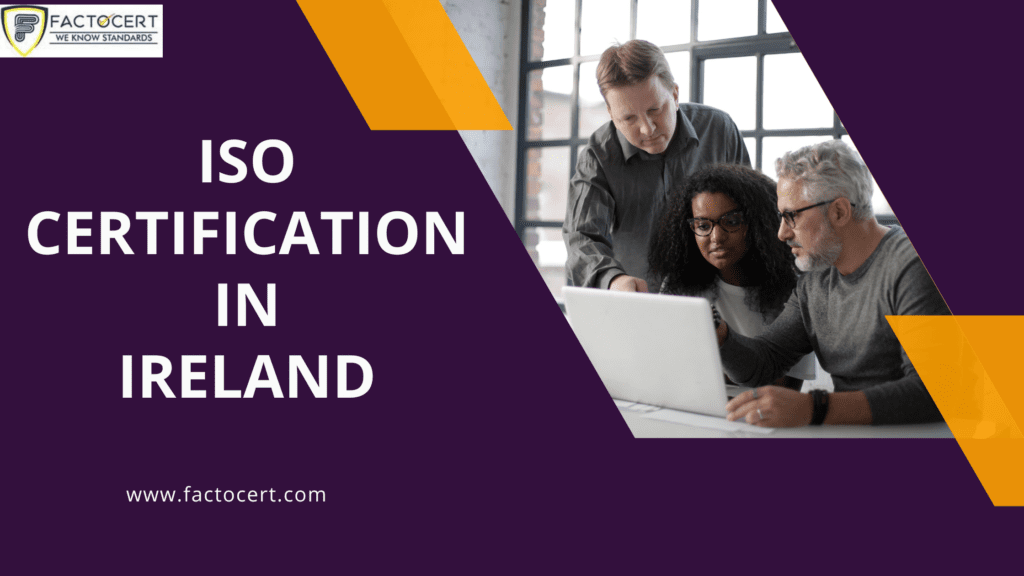ISO certification in Ireland, such as ISO 9001 for quality, ISO 14001 for the environment, and ISO 45001 for safety, benefits the tobacco business by increasing operational efficiency, ensuring product quality, lowering environmental impact, and improving workplace safety. It shows a dedication to standards, expedites procedures and improves credibility in international markets. Certifications, however, do not address the health risks connected to tobacco products or lessen the moral implications of using them.
What are the benefits of ISO certification in Ireland for the tobacco sector?
Obtaining ISO certification can benefit the Ireland tobacco sector in various ways despite the industry’s contentious character. Internationally recognized standards are established for many areas of a business’s operations through ISO (International Organisation for Standardisation) accreditation. The tobacco sector may gain from ISO certification in the following ways:
ISO 9001 Quality Management:
The emphasis of ISO 9001 certification is on quality control systems. This accreditation can guarantee the tobacco industry’s manufacturing procedures, product quality, and consumer satisfaction meet predetermined benchmarks. It contributes to improving overall efficiency, error reduction, and operational streamlining.
ISO 14001 Environmental Management:
The emphasis of this certification is environmental management systems. Despite the tobacco industry’s inherent nature, obtaining ISO 14001 certification can show a dedication to controlling waste, lowering the sector’s carbon footprint, and minimizing environmental effects.
Safety and Health at Work (ISO 45001):
This certification covers the occupational health and safety management systems. The tobacco business uses various potentially hazardous products in its manufacturing process. As a result, applying ISO 45001 standards can help ensure a safer workplace, lower accident rates, and safeguard employee health.
Management of the Supply Chain:
Supply chain management is also covered by ISO certifications (e.g., ISO 28000 for supply chain security). This is advantageous for guaranteeing the safety and security of the whole supply chain, which is essential for the operations of the tobacco business, from the procurement of raw materials to their distribution.
Global Trade and Access to Markets:
The industry’s reputation and competitiveness in the global market can be improved via ISO certifications. Certifications may facilitate trade agreements and market access by assuring consumers and regulatory agencies that a company is adhering to international standards.
It is noteworthy, therefore, that the tobacco industry confronts substantial obstacles concerning public health issues, legal restrictions, and moral considerations. Although ISO certifications have the potential to enhance operations, they do not tackle the fundamental problems about the health effects of tobacco products or the societal worries around their usage.
Furthermore, given the contentious nature of tobacco use and its potential health effects, some jurisdictions may have laws that prohibit or limit the kinds of certifications that the tobacco business can obtain.
In the end, ISO certificates may be advantageous from an operational standpoint. Still, they do not address the more significant social and health issues related to the goods produced by the tobacco business.
Procedure for obtaining ISO certification in Ireland:
In Ireland, obtaining ISO certification entails a few crucial steps:
Determine Which ISO Standard Is Relevant:
Choose the ISO standard or standards—such as ISO 9001 for quality management, ISO 14001 for environmental management, or ISO 45001 for occupational health and safety—that apply to your tobacco industry business.
Analysis of the Gap:
To evaluate your current systems, methods, and processes compared to the selected ISO standard(s) requirements, perform a gap analysis. Determine what must be aligned or improved to satisfy the standard’s requirements.
Create Documentation:
To comply with the ISO standard(s), create and implement the appropriate policies, procedures, processes, and documentation. This could entail defining roles and duties, conducting risk assessments, setting goals, and drafting a quality manual.
Instruction and Execution:
Employees should be trained in the new procedures and processes described in the ISO standard(s). Make sure that everyone in the company complies by implementing the adjustments.
Internal Exam
Conduct an internal audit to evaluate the implemented systems’ performance and find any inconsistencies or potential improvement areas.
Remedial Measures:
Take remedial action to address any non-conformities discovered during the internal audit to fix problems and enhance procedures.
External Evaluation by Accreditation Organisation:
To perform an external audit, choose an Irish certification body that has been accredited. To ascertain compliance with the ISO standard(s), the certification body will examine your systems, procedures, and supporting paperwork.
Decision on Certification:
Based on your organization’s compliance with the standard(s), the certification authority will choose whether to provide ISO certification to you after a successful external audit.
Constant Enhancement:
After certification, keep compliance current by doing routine internal audits, monitoring processes, and fixing any inconsistencies found in later audits.
Why is Factocert Ireland the most trustworthy location to obtain ISO certification?
Our ISO Consultant in Ireland has extensive experience producing amazing mechanical effects. The business does not require technique leaders since each offers automatic name representations. This method allows showing live sporting events on a system map.
ISO Consultant in Ireland Ltd. is a reputable business offering excellent ISO consulting services. It is an Irish ISO Consultant in Dublin.
Ireland’s most prominent cities are Belfast, Cork, Derry, and Limerick.
These are the most populous towns in Ireland. Obtaining additional ISO Standards like ISO 22000, 17025, and 45001, as well as audit registration and application training, is possible. These products meet ISO 27001 through ISO 14001 compliance requirements.
ISO specialists from Ireland might also think about searching for expansion prospects. Factocert is now offering a free estimate for certification prices.
Visit: ISO Certification in Ireland.





